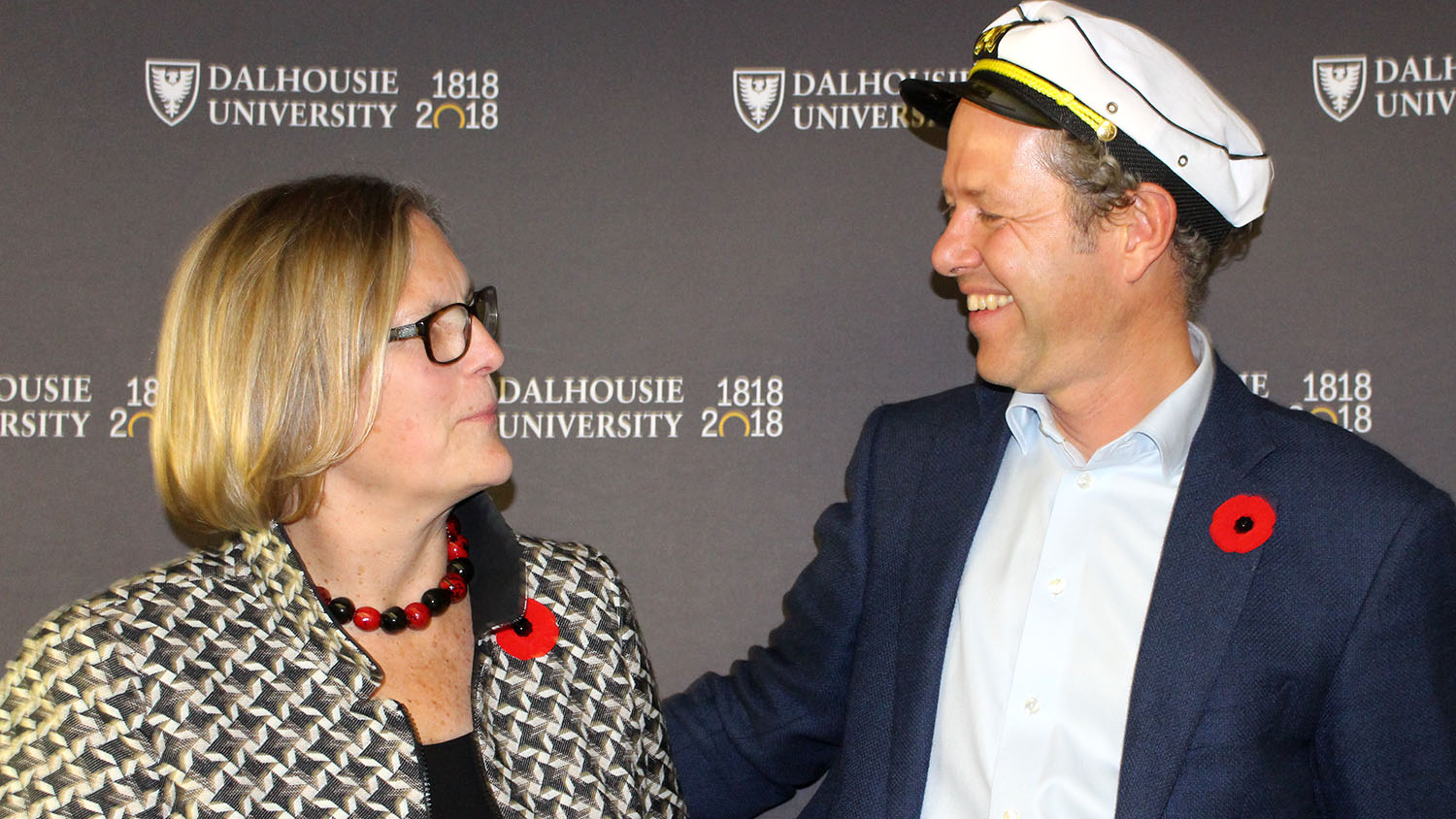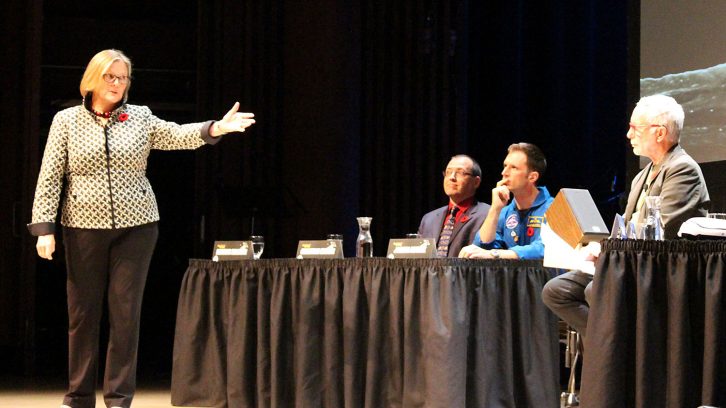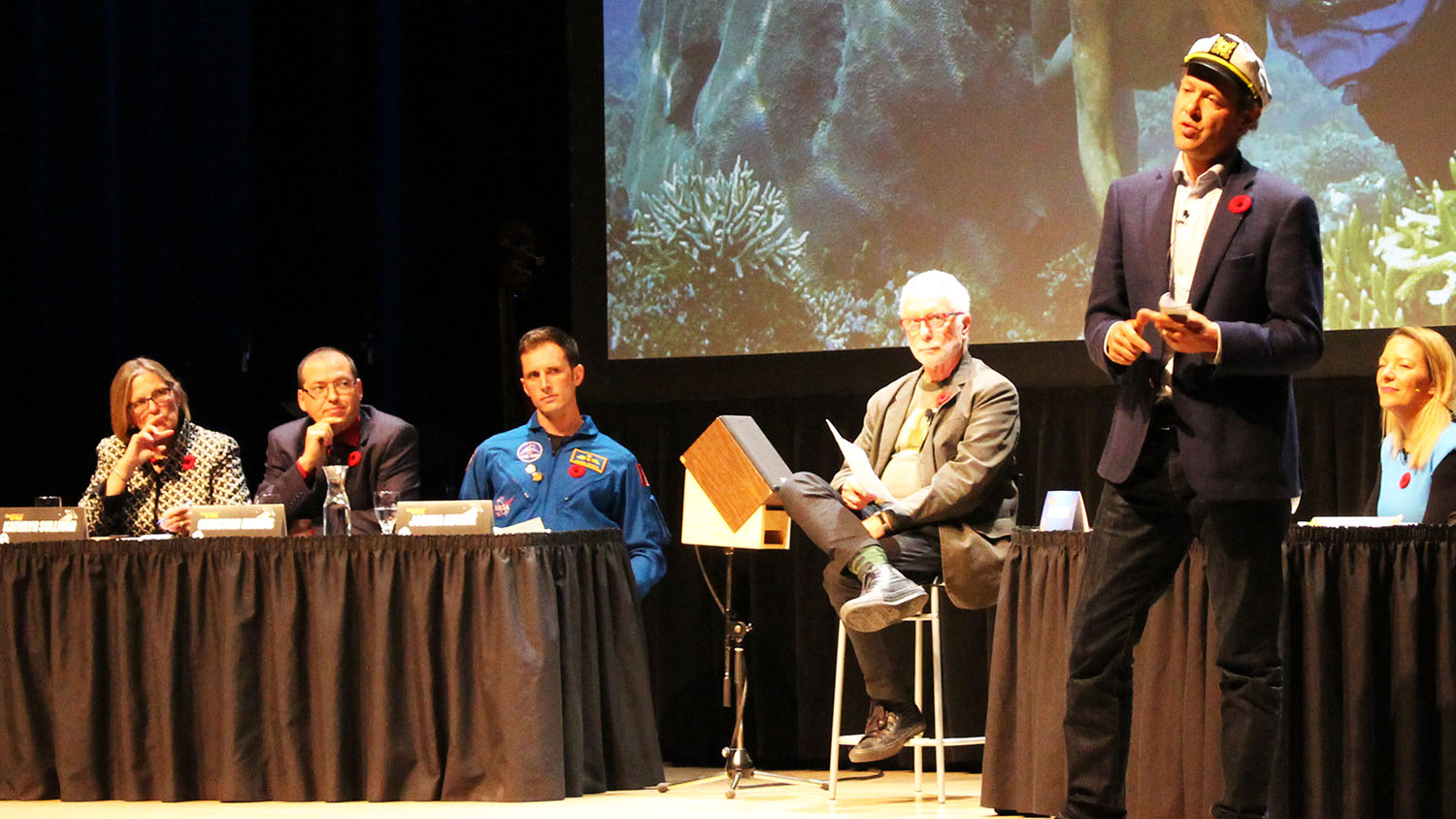Science
Ocean vs. space: scientists debate next frontier
Dalhousie University keeps science fun with an expert battle of the minds

caption
Kathryn Sullivan reconciles with opponent Boris Worm after the Great Debate at Dalhousie University.A raucous crowd spent Monday night cheering on a scientific dilemma at Dalhousie University. A debate over space or the ocean as the next frontier was put to an audience vote, and tied after a lively debate between scientists.
Many in attendance at the Great Debate were students involved with STEMFEST, a provincewide initiative happening this week. Its goal is to encourage students of all ages to explore new ideas in science, technology, engineering and mathematics.
Let the debates begin! @DalPres gets a full house to cheer on their sides, #DalTeamOcean or #DalTeamSpace #dal200 pic.twitter.com/IEI5h7LT69
— Emma Wilkie (@emmawilkie) November 5, 2018
Antje Boetius, a German marine biologist, opened the discussion by arguing for the ocean.
As she stood in front of a slide showing deep sea worms, she explained the cells her team found on the ocean floor that could survive 1,000 years. “Will they tell us the secret?” she asked the crowd.
She encouraged the audience to consider this “deep enigmatic ocean life.” Her tone seemed playful, but her message was serious. This was a tactic shared by the other debaters.
Joshua Kutryk, a test pilot with the Canadian Space Agency, matched her enthusiasm in his rebuttal. “To answer the deepest and most fundamental questions about where we’re going in the future, we need to be looking for that life off the planet,” he said while wearing his blue flight suit.
Mark Abbott, president of the Woods Hole Oceanographic Institution in Massachusetts, countered with a pitch for the ocean. He argued that space exploration can take years just to get there but ocean research doesn’t have that delay.
“It’s great to talk about life on other planets, but the urgency here is much more intense,” he said.

caption
Kathryn Sullivan, the first American woman to walk in space, walks on stage at the Great Debate in Halifax.Former NASA astronaut Kathryn Sullivan, the first American woman to walk in space, interjected throughout the event on behalf of Team Space. She paused several times for cheers and laughter from the audience to subside.
“Are you arguing that information you can gain quickly is necessarily more valuable than information that is harder to gain?” she asked Abbott.
When the crowd stopped cheering Abbott responded.
“We don’t want to talk about all the NASA technology that ends up at the bottom of the ocean,” he said. The crowd roared.
Sullivan said space exploration implies unity, describing how people talk about when “we” landed on the moon.

caption
Dalhousie’s Boris Worm speaks for Team Ocean at the Great Debate.Dalhousie biology professor Boris Worm said space exploration is exclusive.
“Exploring outer space is the privilege of very few,” he said, arguing the ocean is something everybody can take care of, as it is “our inclusive, common frontier.”
In the end, moderator Jay Ingram, scientist and former host of Daily Planet, declared a tie as the crowd clapped in support of both teams.
In an interview after the event, Worm said the debate’s playful format helps audiences of all backgrounds engage with scientific ideas. “Be curious,” he added. “Care about this world because it is yours.”
The debate was held at the Rebecca Cohn Auditorium. It helped kick off a series of scientific events put on by Dalhousie University to celebrate its 200th anniversary.


D
David Wilkie
J
Jennifer
W
Walter Hayduk
D
Dylan Coutts